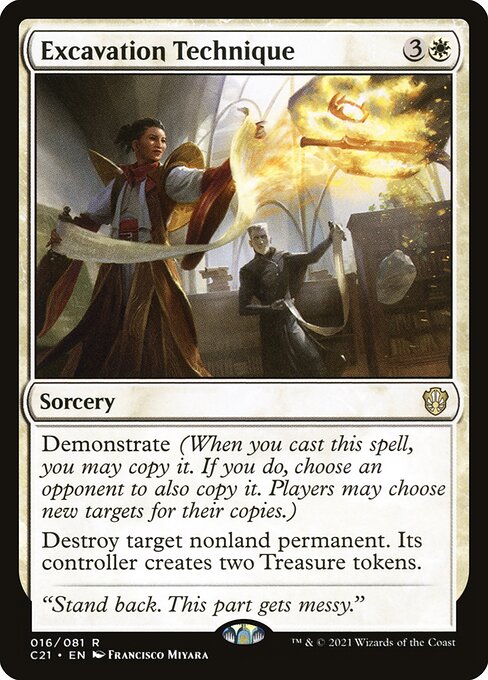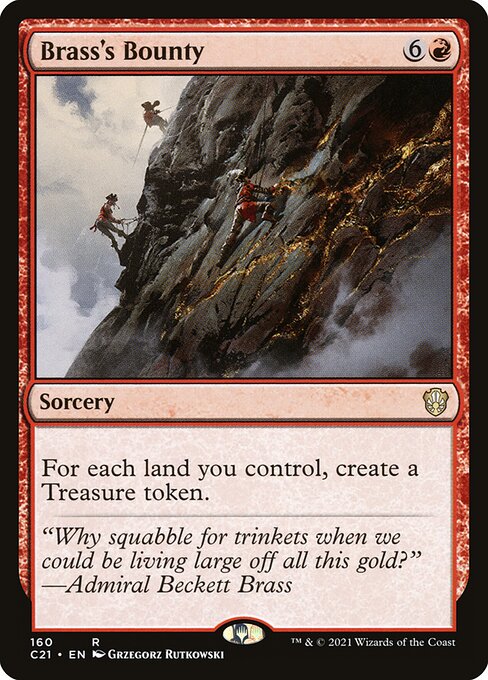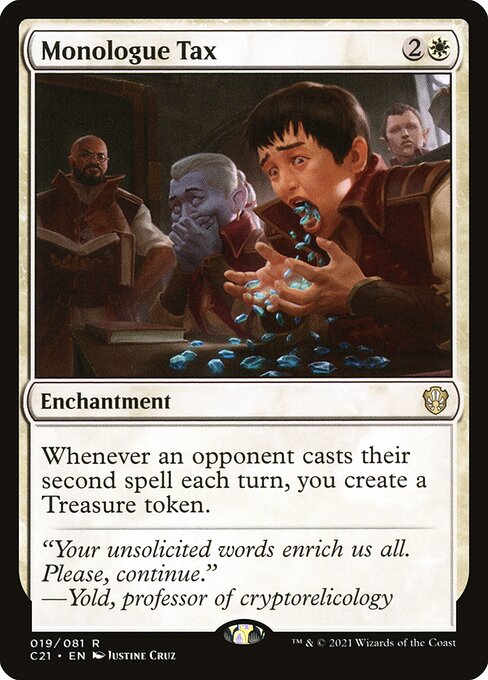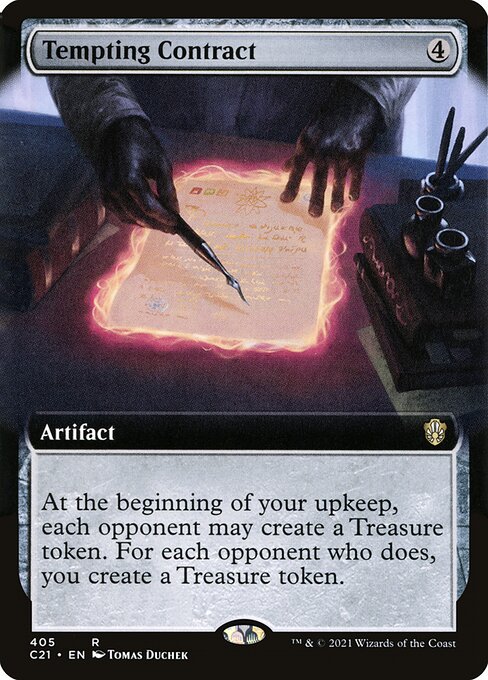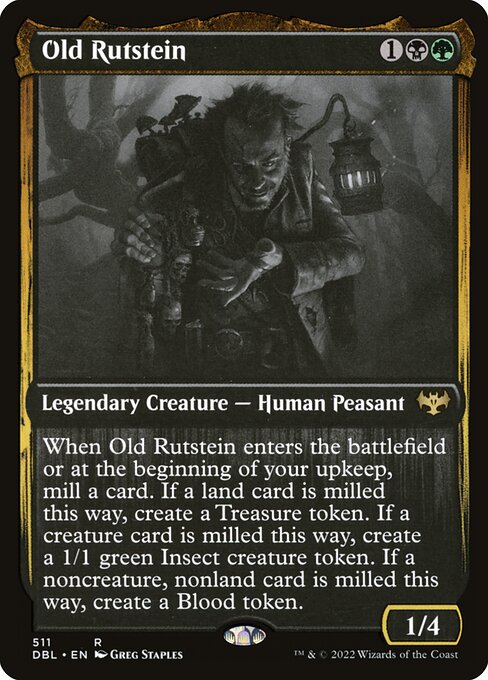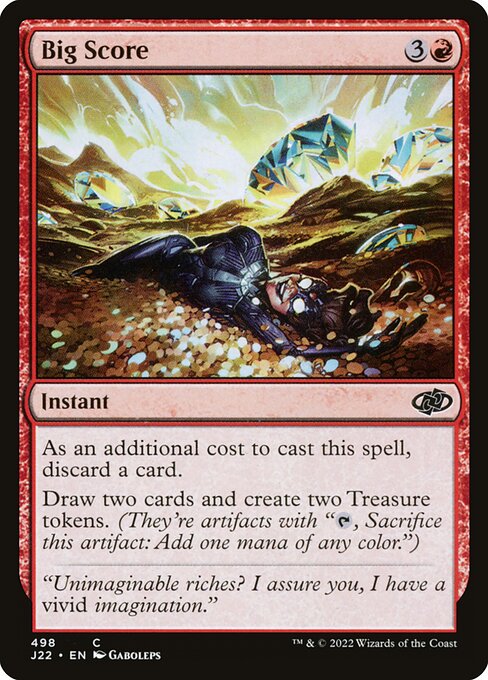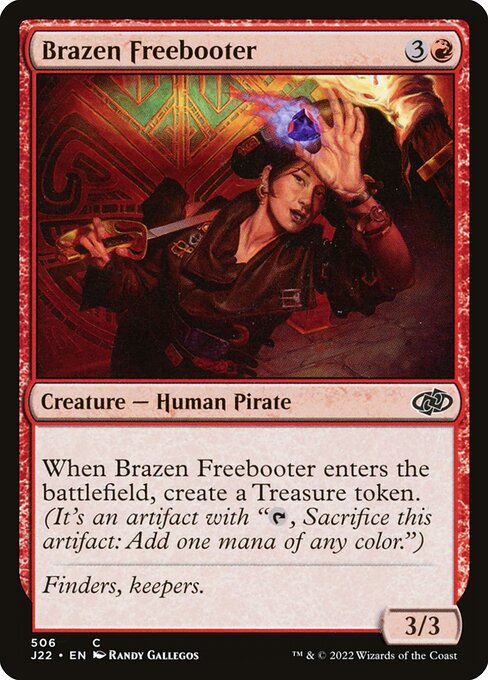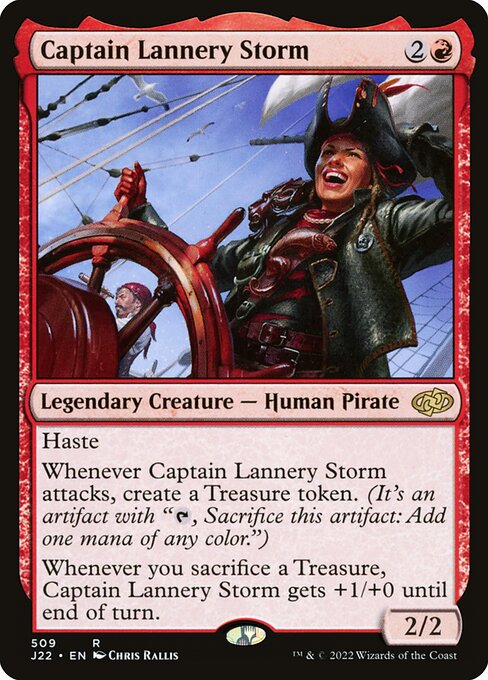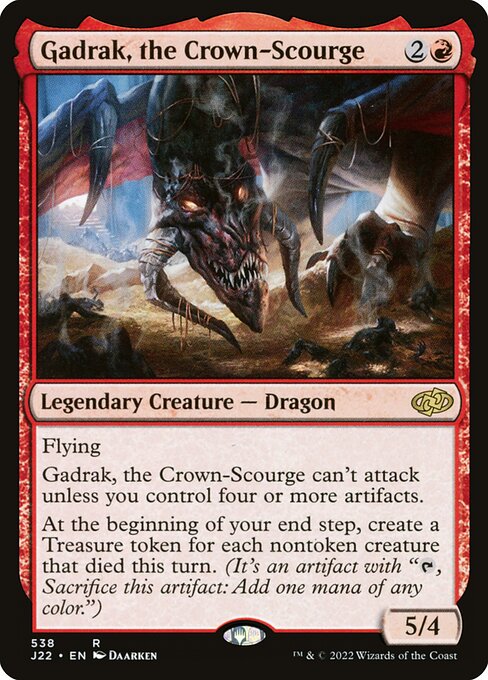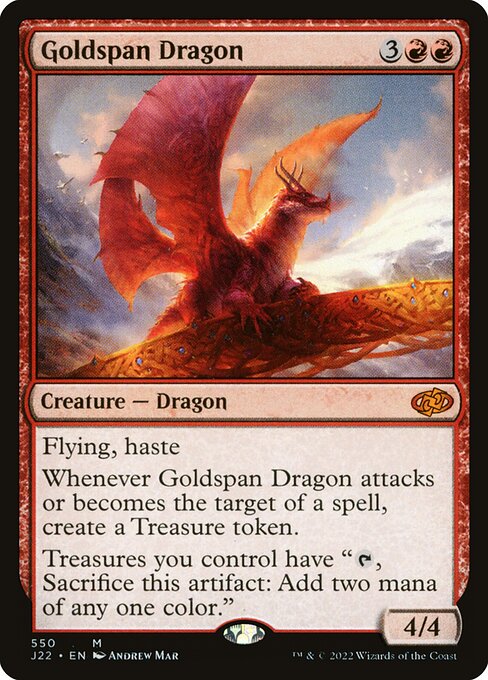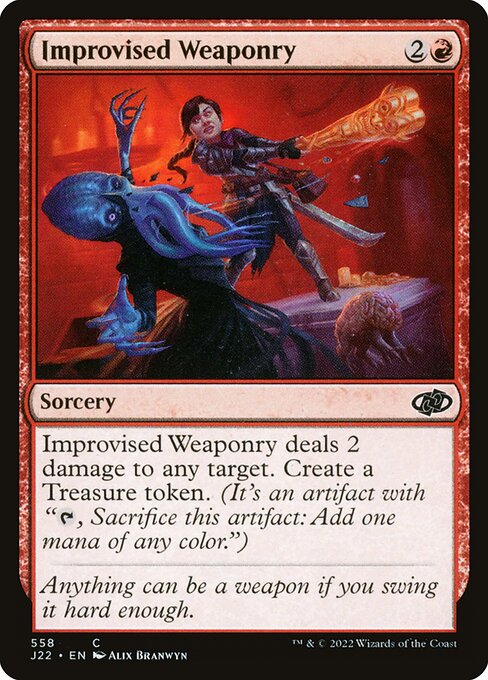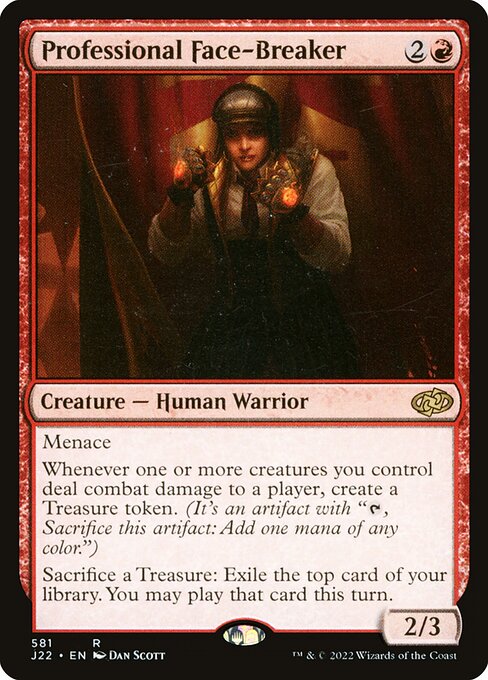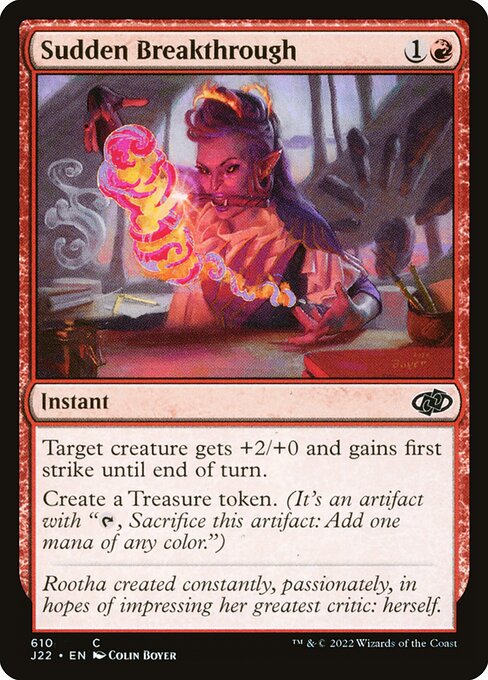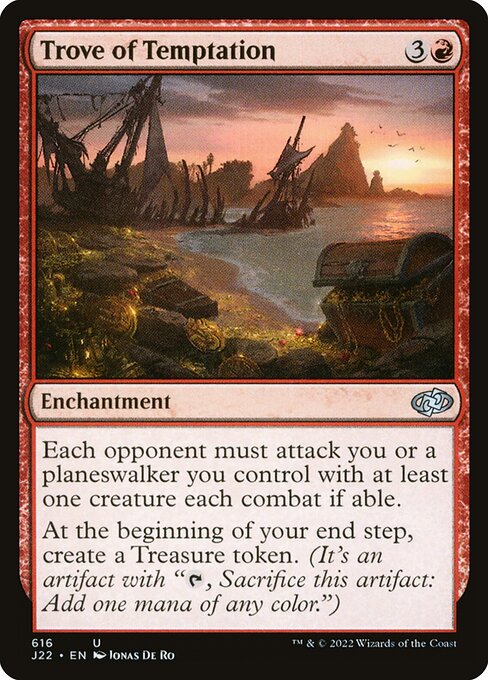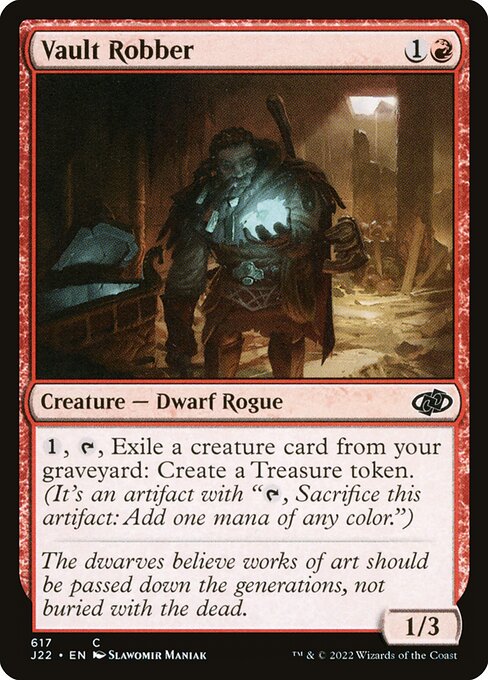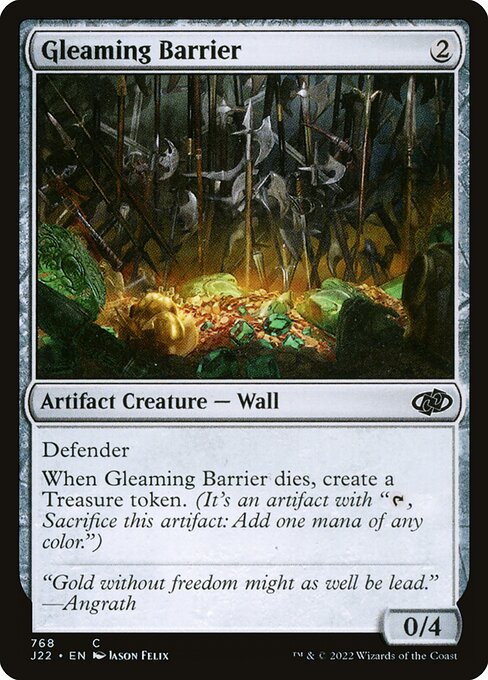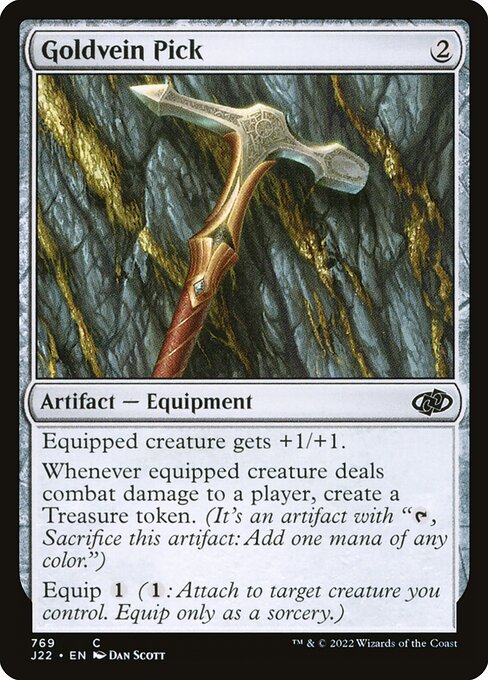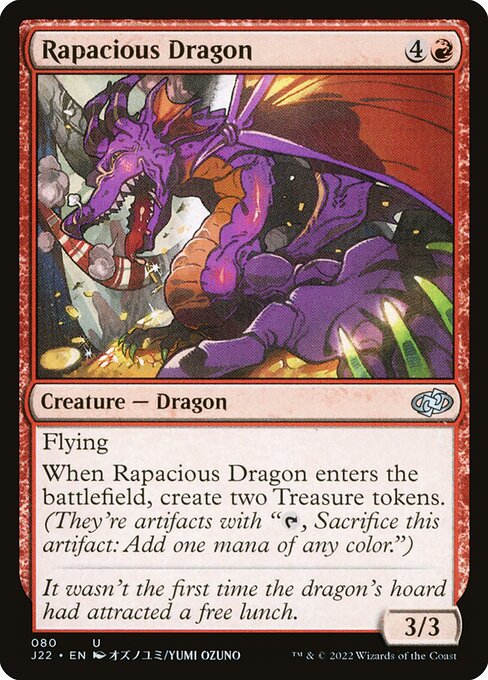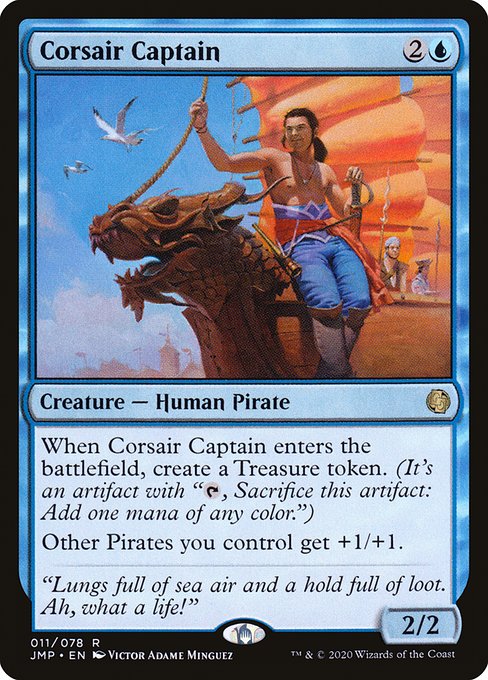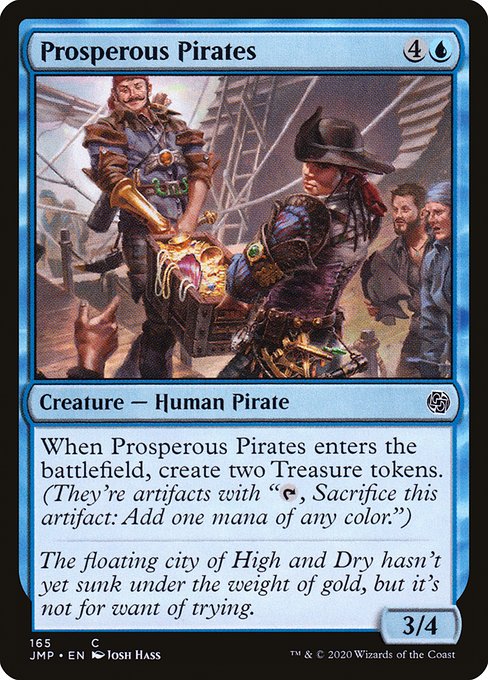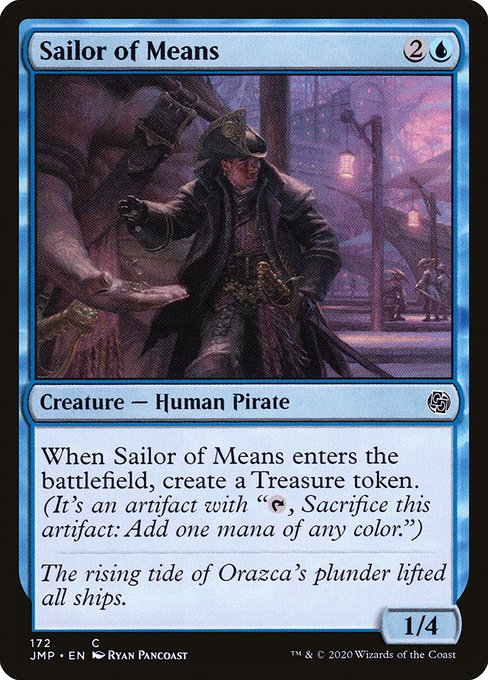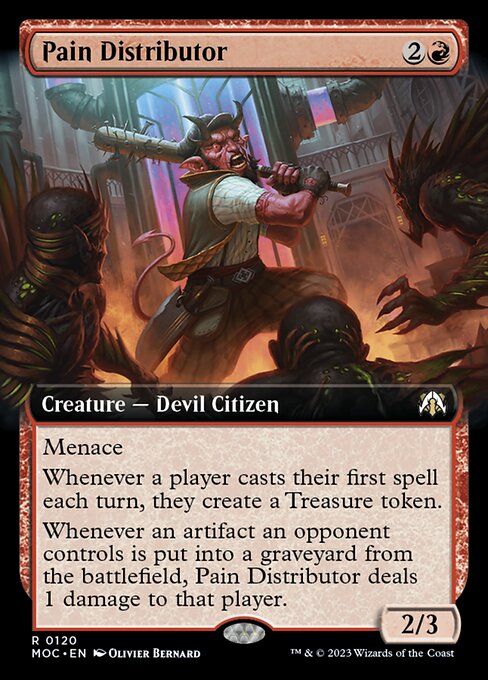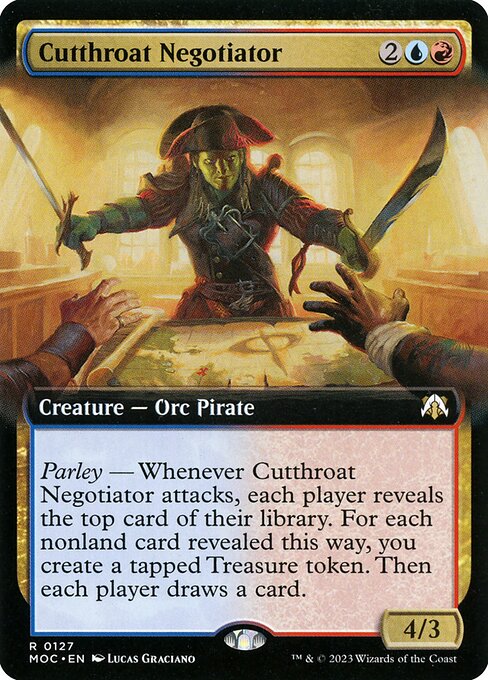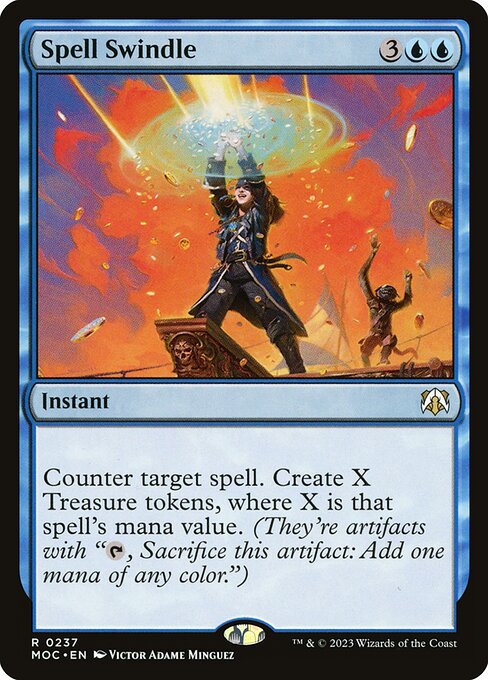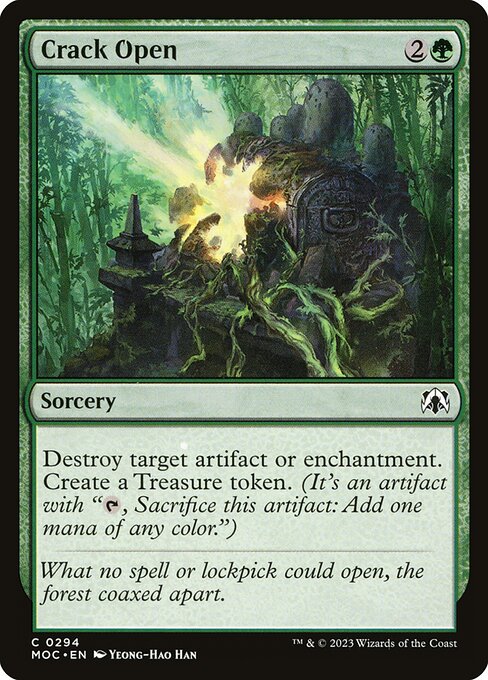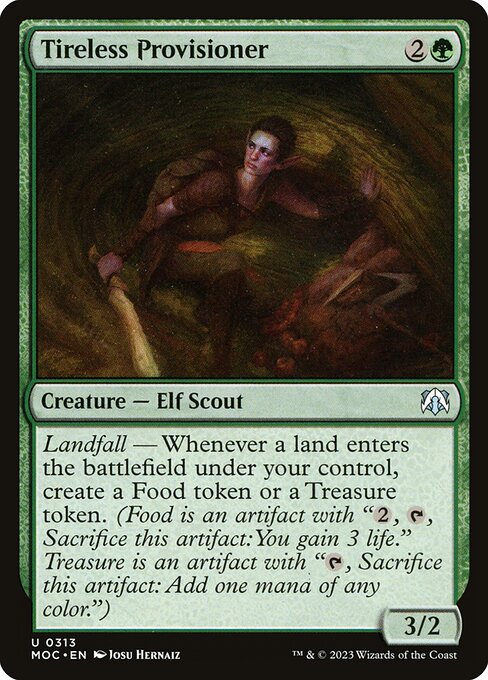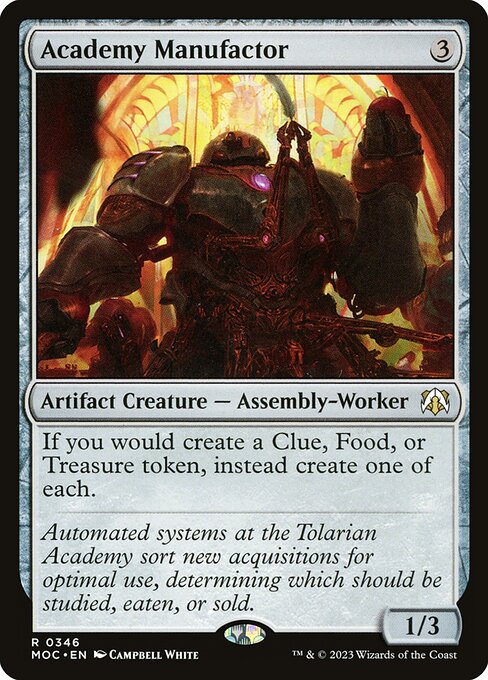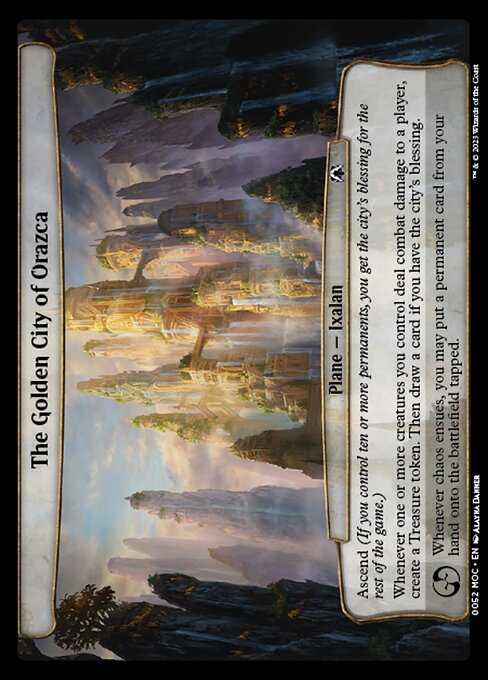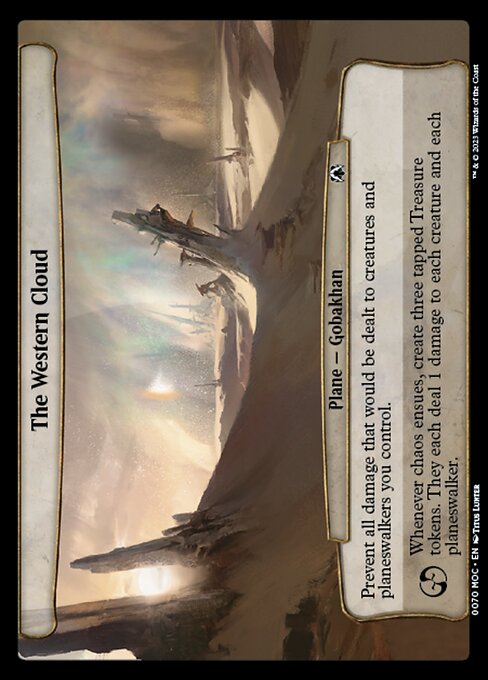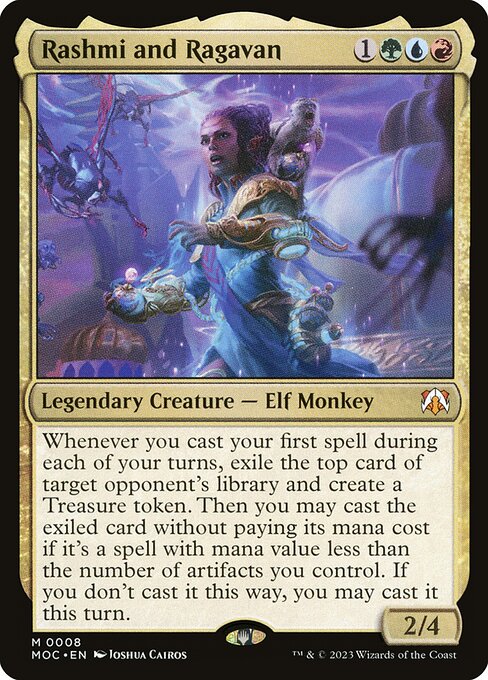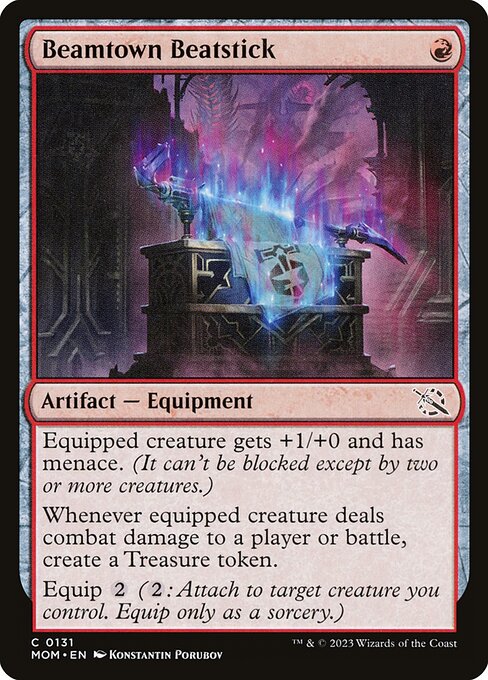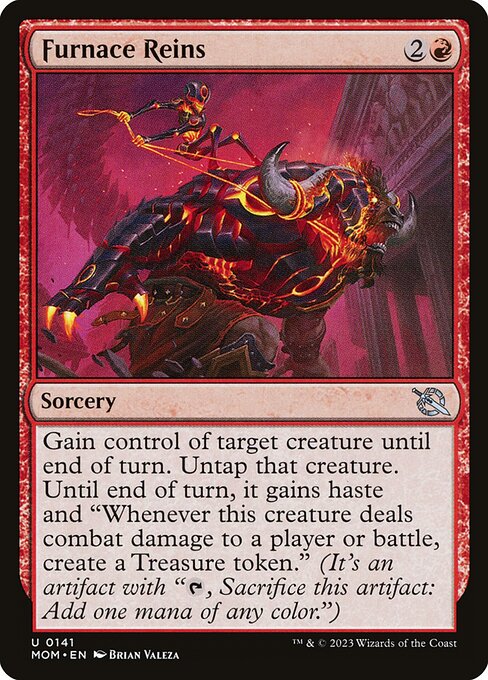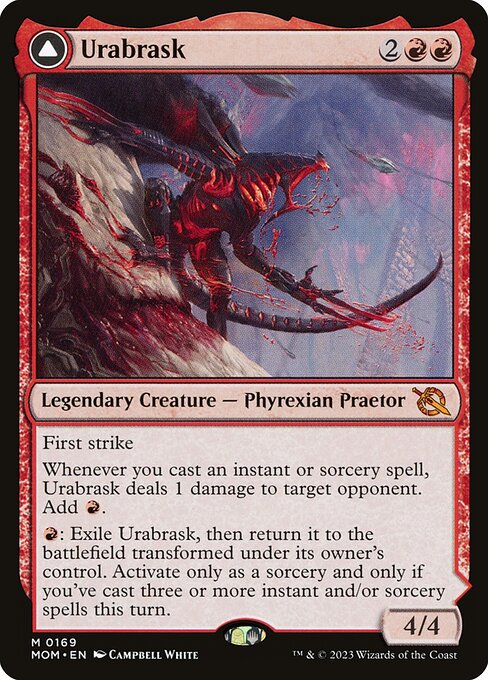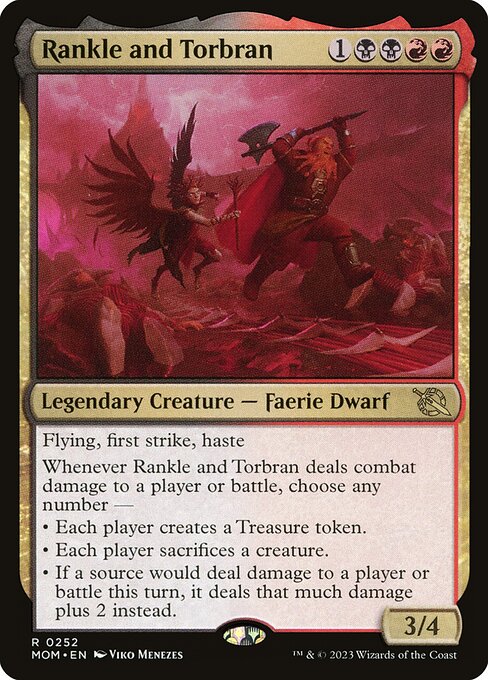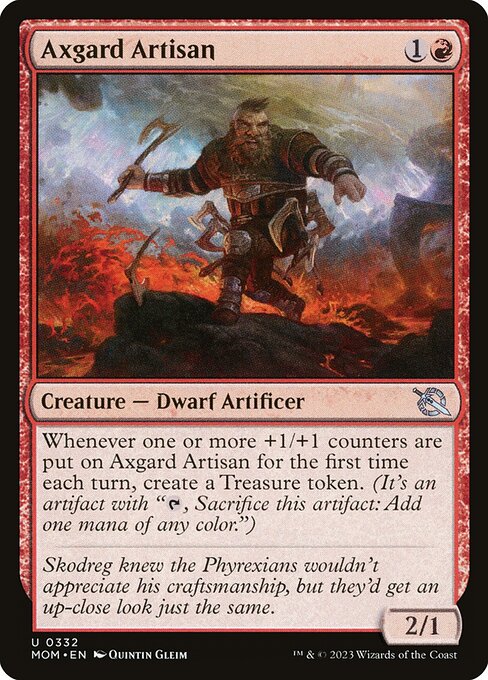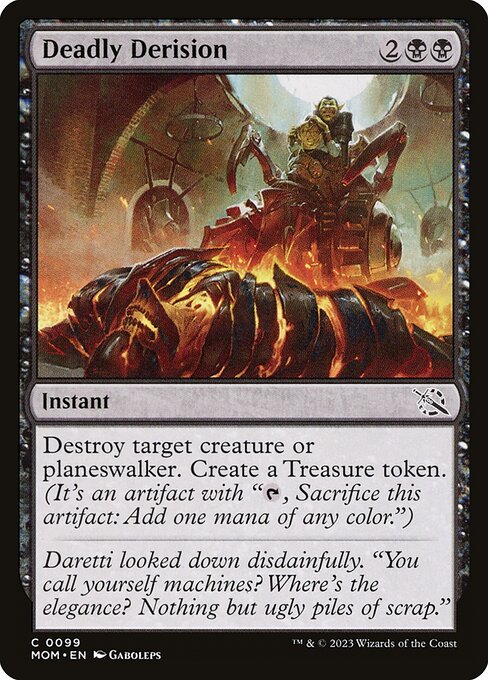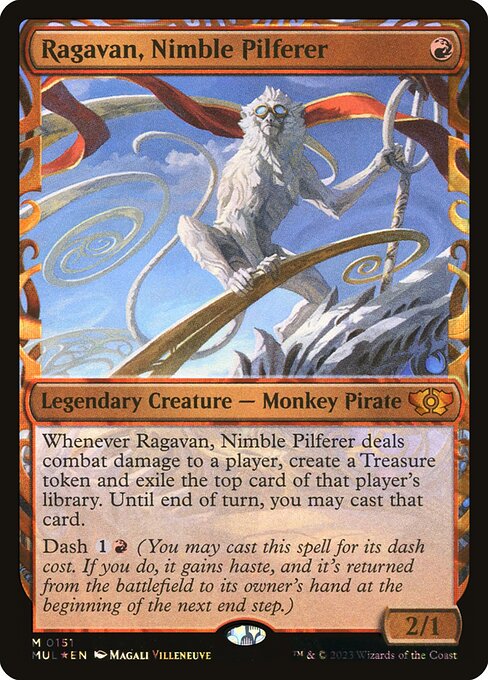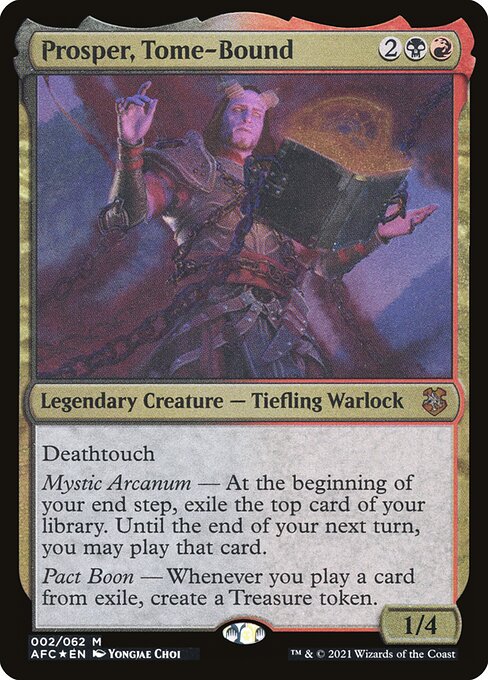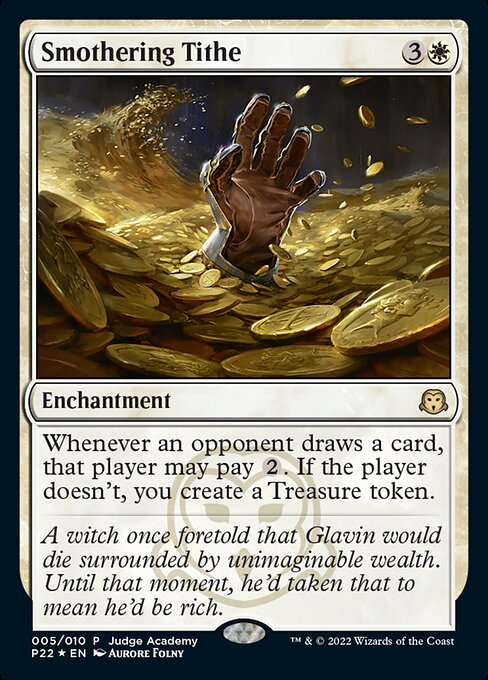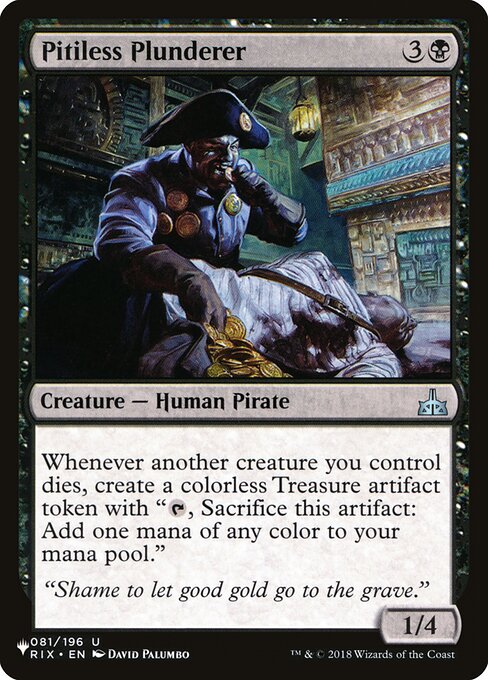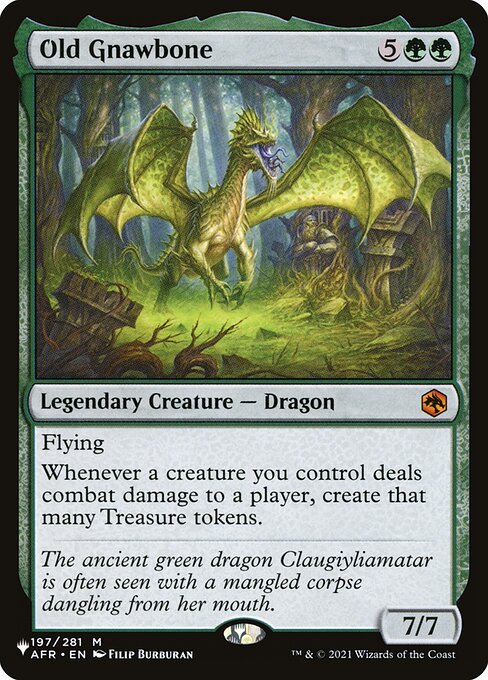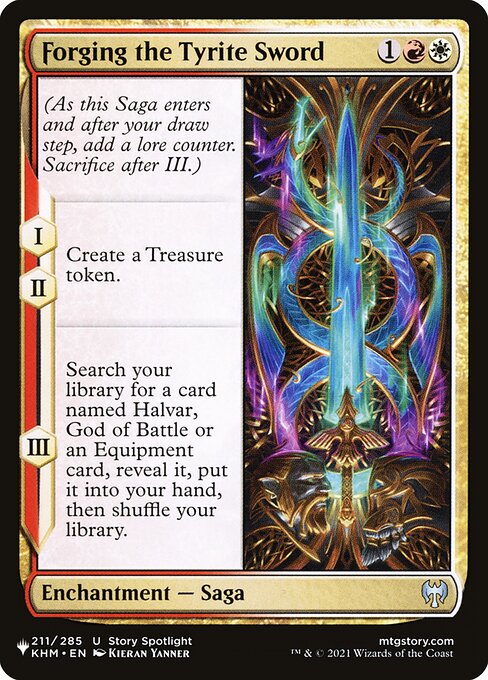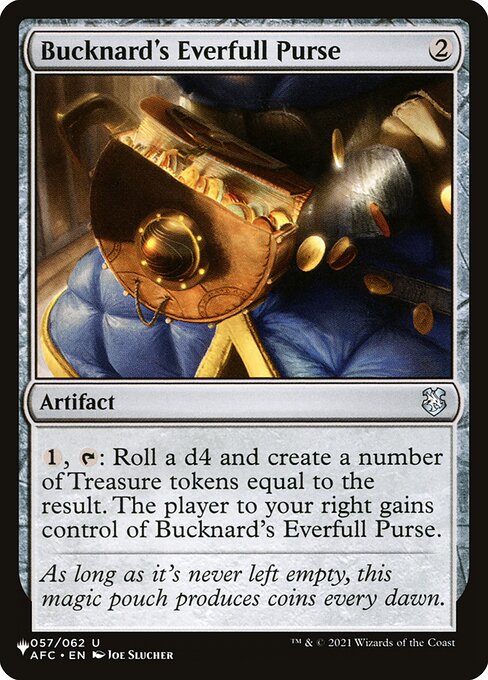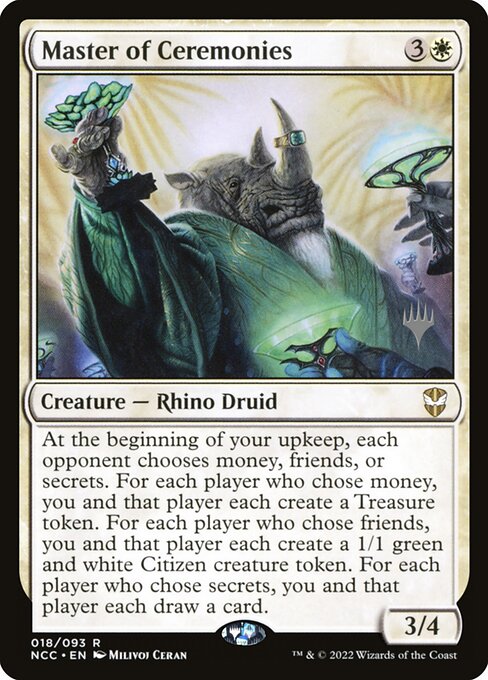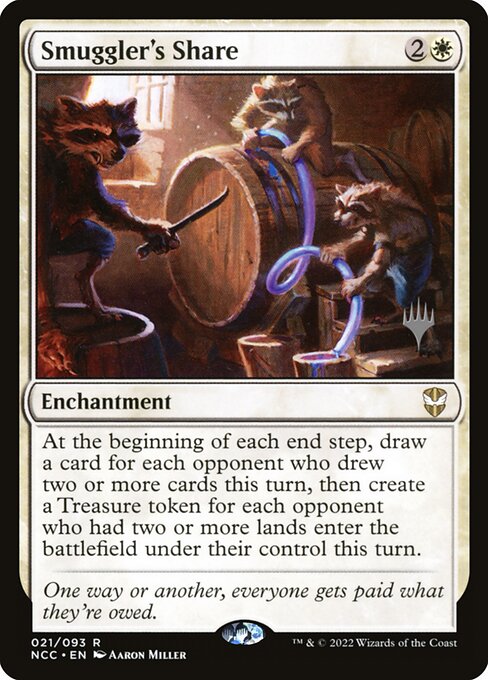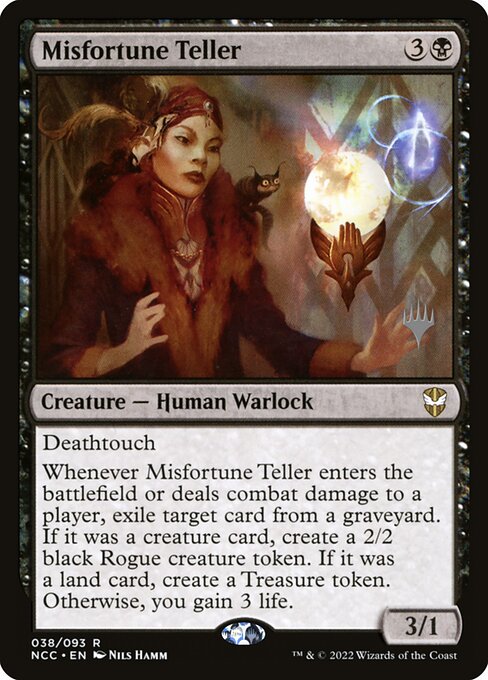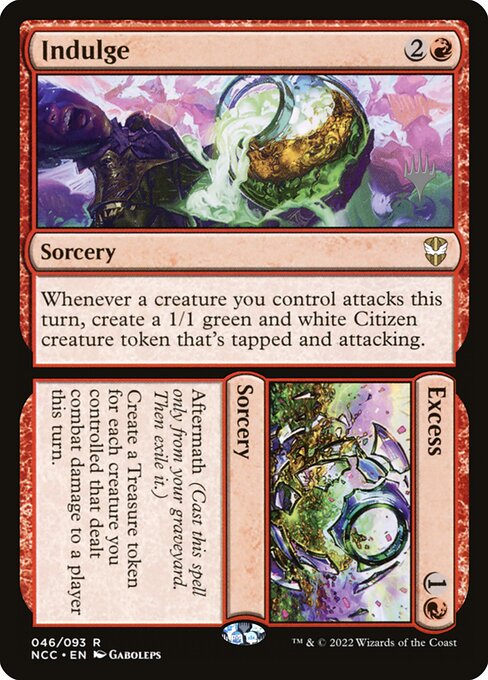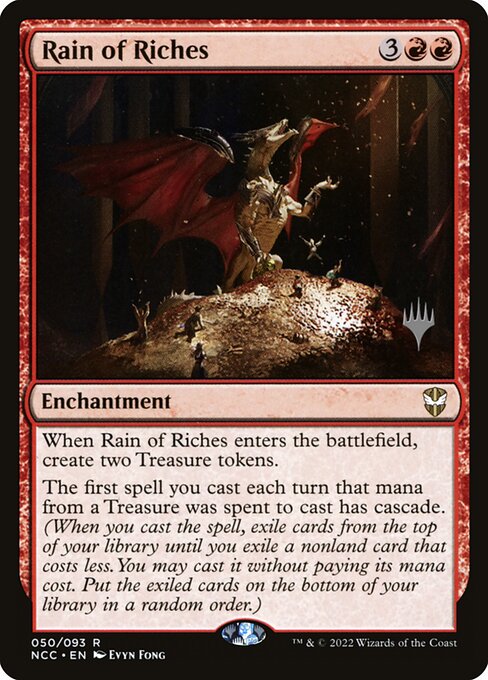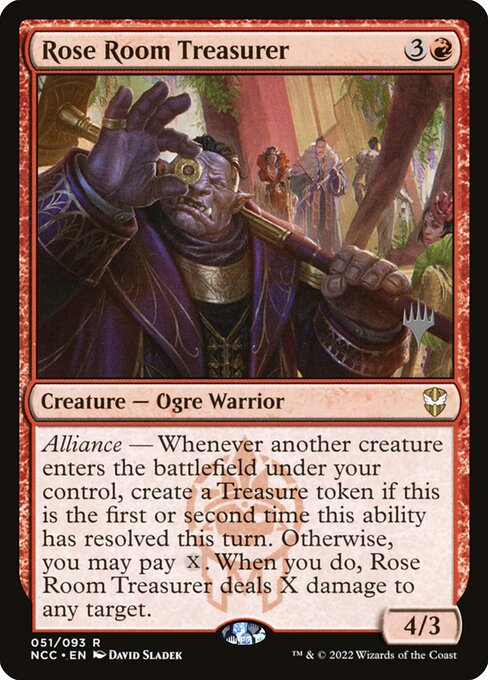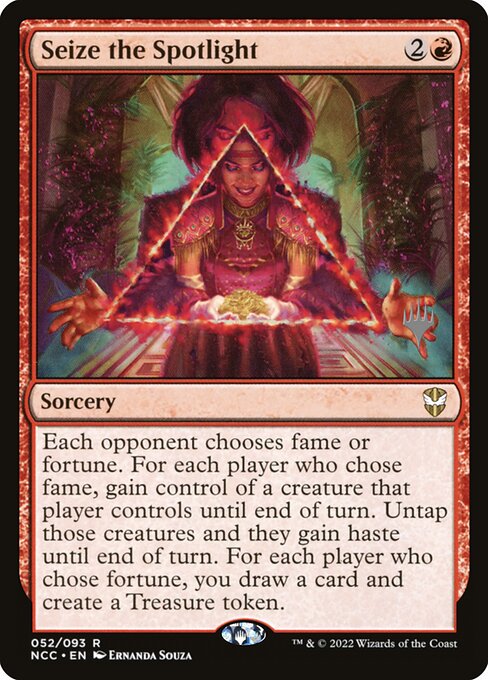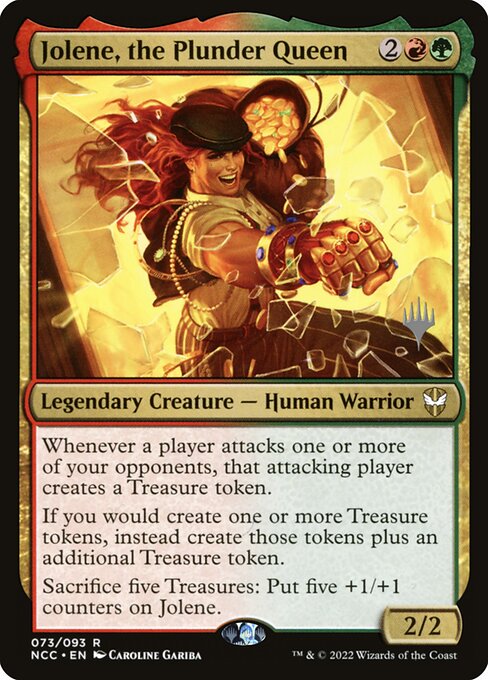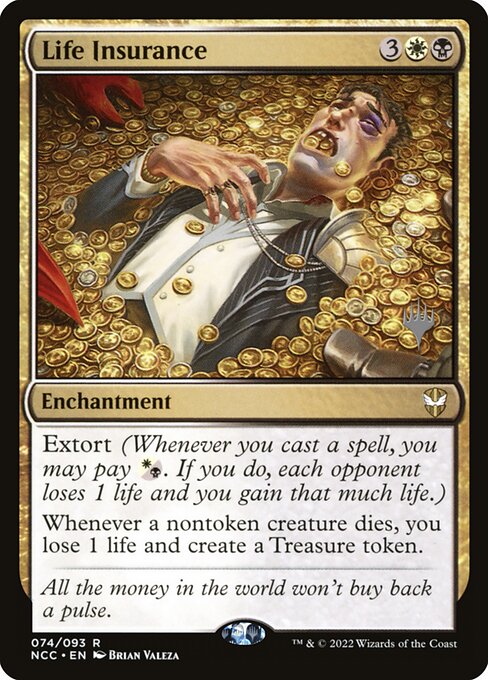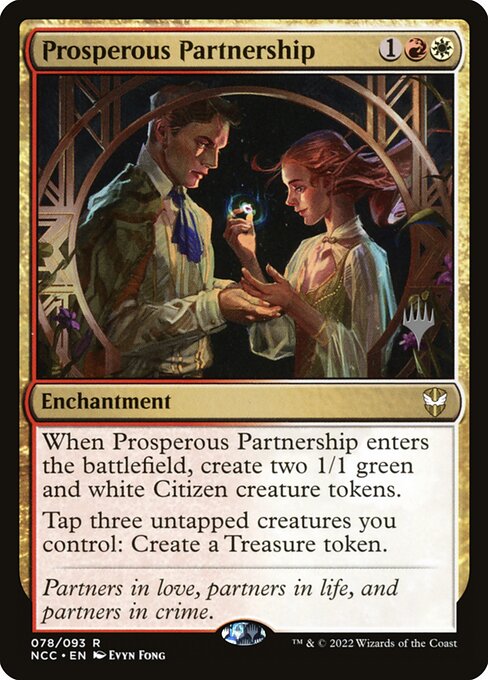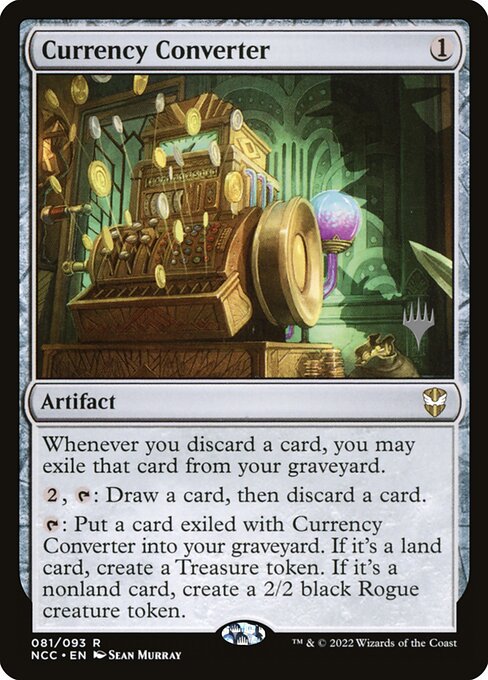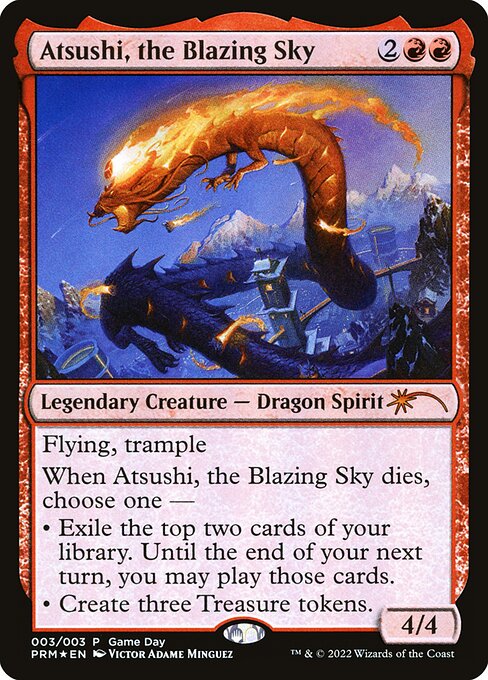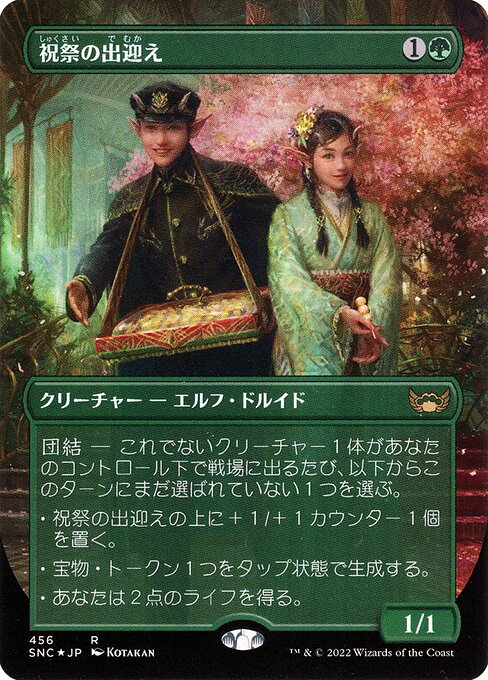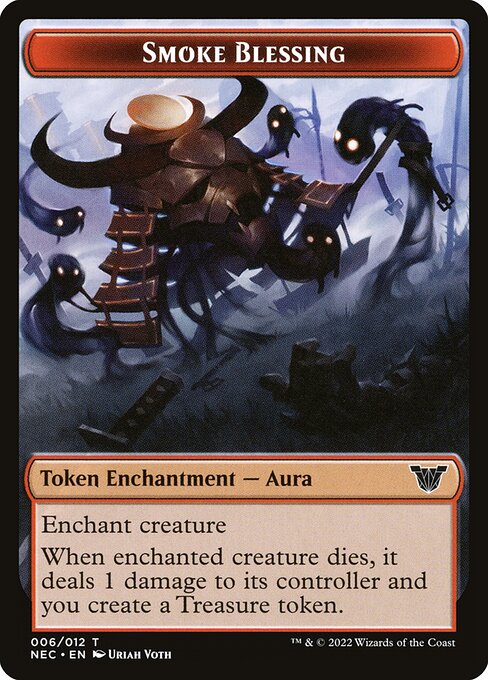Urabrask // A Grande Obra
//
Criatura Lendária — Phyrexiano Pretor // Encantamento — Saga
Iniciativa
Toda vez que você conjura uma mágica instantânea ou um feitiço, Urabrask causa 1 ponto de dano ao oponente alvo. Adicione .
: Exile Urabrask e depois o devolva ao campo de batalha transformado sob o controle de seu dono. Ative somente como um feitiço e apenas se tiver conjurado três ou mais mágicas instantâneas ou feitiços neste turno. // (Conforme esta Saga entra e após sua etapa de compra, adicione um marcador de conhecimento.)
I — A Grande Obra causa 3 pontos de dano ao oponente alvo e a cada criatura que ele controla.
II — Crie três fichas de Tesouro.
III — Até o final do turno, você pode conjurar mágicas instantâneas ou feitiços de qualquer cemitério. Se uma mágica conjurada dessa forma seria colocada em um cemitério, em vez disso, exile-a. Exile A Grande Obra e depois a devolva ao campo de batalha (com a face voltada para cima).
Toda vez que você conjura uma mágica instantânea ou um feitiço, Urabrask causa 1 ponto de dano ao oponente alvo. Adicione .
: Exile Urabrask e depois o devolva ao campo de batalha transformado sob o controle de seu dono. Ative somente como um feitiço e apenas se tiver conjurado três ou mais mágicas instantâneas ou feitiços neste turno. // (Conforme esta Saga entra e após sua etapa de compra, adicione um marcador de conhecimento.)
I — A Grande Obra causa 3 pontos de dano ao oponente alvo e a cada criatura que ele controla.
II — Crie três fichas de Tesouro.
III — Até o final do turno, você pode conjurar mágicas instantâneas ou feitiços de qualquer cemitério. Se uma mágica conjurada dessa forma seria colocada em um cemitério, em vez disso, exile-a. Exile A Grande Obra e depois a devolva ao campo de batalha (com a face voltada para cima).
4/4
standard
future
historic
gladiator
pioneer
modern
legacy
pauper
vintage
penny
commander
brawl
alchemy
paupercommander
duel
oldschool
premodern
Rulings
If multiple players are allowed to cast the same card, the player with priority at any given time determines who can cast it. The player whose turn it is has priority as each step and phase begins, and they receive priority after each spell and ability resolves. This means immediately after chapter III resolves you’ll have priority to cast spells before any other player does.
Urabrask will count any instant or sorcery spells you’ve cast during the turn, whether those spells resolved, didn’t resolve, were countered, or left the stack some other way. Urabrask won’t count copies of instant and sorcery spells that were created on the stack and not cast.
After chapter III of The Great Work resolves, casting spells from graveyards follows the normal rules for casting those cards. You must pay their costs, and you must follow all applicable timing rules. For example, to cast a sorcery spell from a graveyard, you can do so by paying its mana cost only during your main phase while the stack is empty.
Urabrask’s second ability isn’t a mana ability, even though it causes you to add mana. It uses the stack and can be responded to.
Urabrask will count any instant or sorcery spells you’ve cast during the turn, whether those spells resolved, didn’t resolve, were countered, or left the stack some other way. Urabrask won’t count copies of instant and sorcery spells that were created on the stack and not cast.
After chapter III of The Great Work resolves, casting spells from graveyards follows the normal rules for casting those cards. You must pay their costs, and you must follow all applicable timing rules. For example, to cast a sorcery spell from a graveyard, you can do so by paying its mana cost only during your main phase while the stack is empty.
Urabrask’s second ability isn’t a mana ability, even though it causes you to add mana. It uses the stack and can be responded to.
Rulings
If multiple players are allowed to cast the same card, the player with priority at any given time determines who can cast it. The player whose turn it is has priority as each step and phase begins, and they receive priority after each spell and ability resolves. This means immediately after chapter III resolves you’ll have priority to cast spells before any other player does.
Urabrask will count any instant or sorcery spells you’ve cast during the turn, whether those spells resolved, didn’t resolve, were countered, or left the stack some other way. Urabrask won’t count copies of instant and sorcery spells that were created on the stack and not cast.
After chapter III of The Great Work resolves, casting spells from graveyards follows the normal rules for casting those cards. You must pay their costs, and you must follow all applicable timing rules. For example, to cast a sorcery spell from a graveyard, you can do so by paying its mana cost only during your main phase while the stack is empty.
Urabrask’s second ability isn’t a mana ability, even though it causes you to add mana. It uses the stack and can be responded to.
Urabrask will count any instant or sorcery spells you’ve cast during the turn, whether those spells resolved, didn’t resolve, were countered, or left the stack some other way. Urabrask won’t count copies of instant and sorcery spells that were created on the stack and not cast.
After chapter III of The Great Work resolves, casting spells from graveyards follows the normal rules for casting those cards. You must pay their costs, and you must follow all applicable timing rules. For example, to cast a sorcery spell from a graveyard, you can do so by paying its mana cost only during your main phase while the stack is empty.
Urabrask’s second ability isn’t a mana ability, even though it causes you to add mana. It uses the stack and can be responded to.
Your collection? Your decks?
Want to manage your collection and/or create decks?
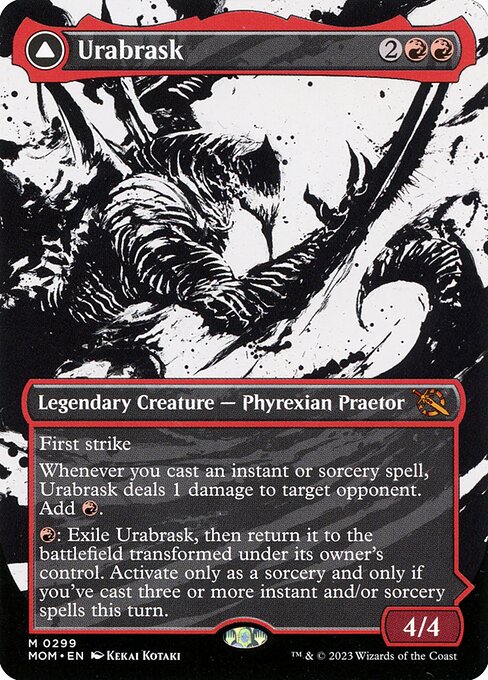

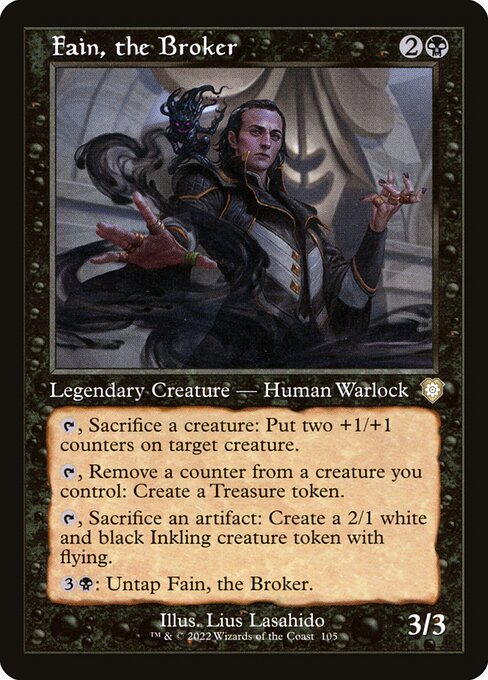

 0.45€
0.45€
